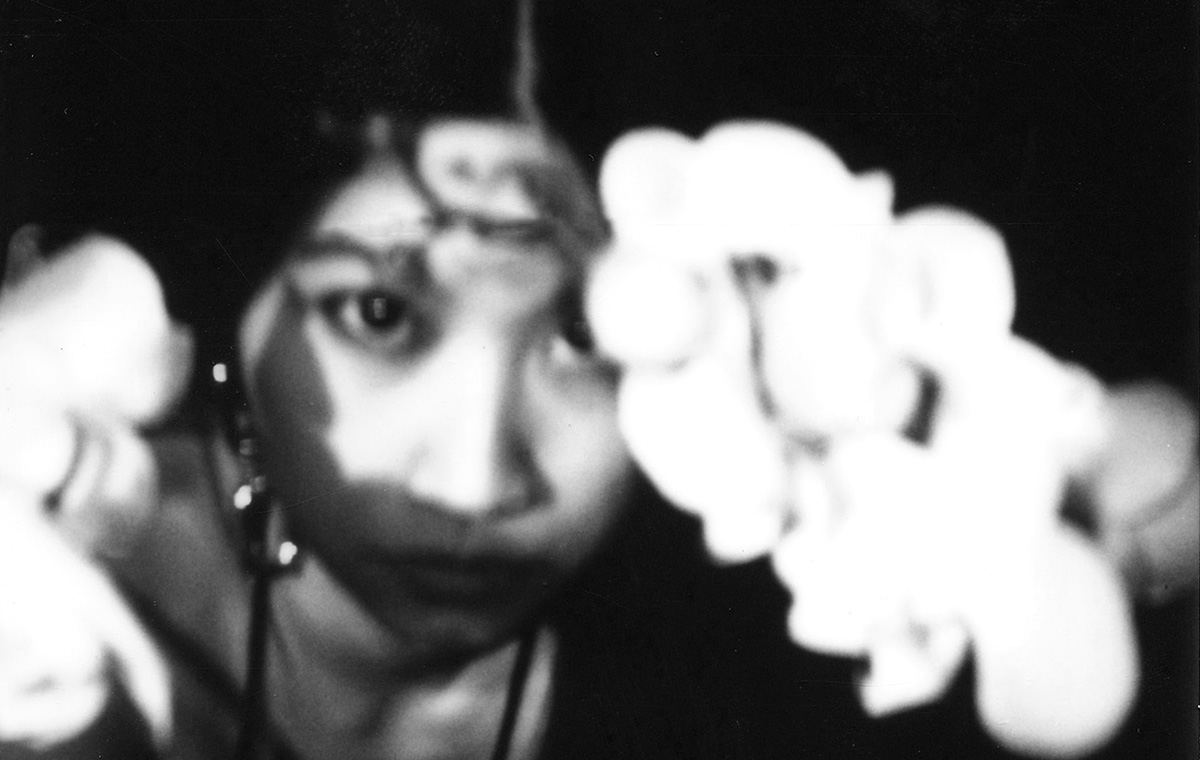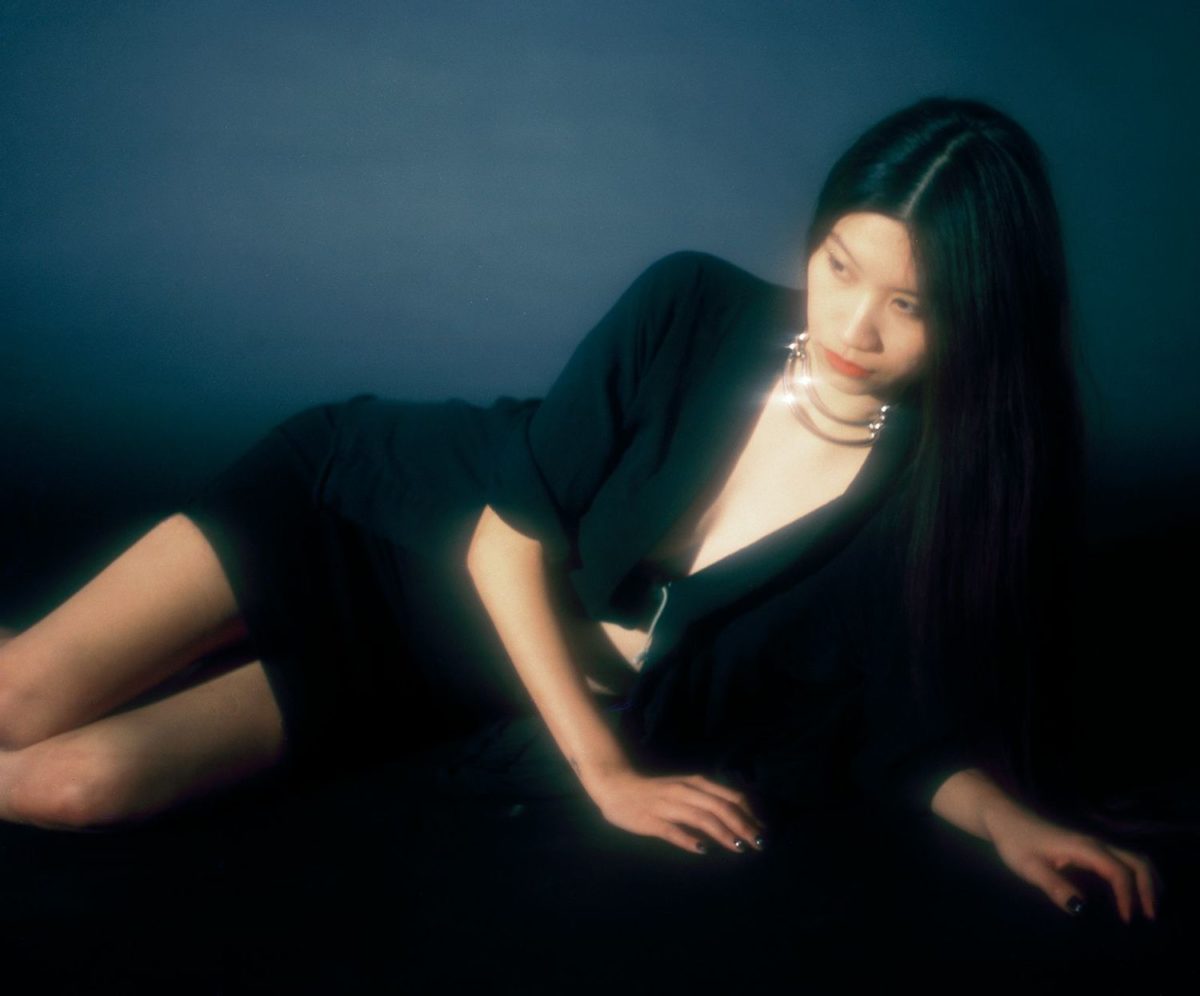Maerzmusik Special: Flora Yin-Wong on TIMEPIECE, sonics and the archaic and eerie aspect of physical clocks.
“I think the aesthetic for me is this idea or feeling of waiting, time passing slowly and consciously.” – Flora Yin-Wong

MaerzMusik – Festival for Time Issues 2021 ends with a 27-hour speaking clock, live performed by Berlin residents on the Grand Stage of Haus der Berliner Festspiele and accompanied musically by compositions from all around the world – an artistic monument in Corona-Times, a community project, and a manifestation of solidarity. On this occasion, we wanted to talk to Flora Yin-Wong, one of the residents sharing 1h of her personal interpretation for TIMEPIECE.
The sound collagist, sonic explorer, London-born electronic musician and composer we know from her latest release ‘Holy Palm’ on Modern Love, her release on PAN-Records as well as numerous ambient works and performances that went under the skin here in conversation with NSNS.
Hi Flora, thanks a lot for taking the time to speak to us. I have been following your work for a long time and got even deeper into your catalogue of projects once I started my research for this interview. Would you tell us a bit about your influences, your skill set as a trained musician, what you like about music and what makes you so hooked about sounds?
My influences range from everything like UK garage to Javanese gamelan and Russian Orthodox chants which everybody loves. In terms of ‘training’ it’s pretty loose, I played violin as a kid for a few years, was in choirs, and did Mixing & Mastering at Goldsmiths to strengthen my ears and confidence.
It seems to me that you are diving deeper and deeper into your personal interest and share that process and progress with the world on a regular basis through your recent album, your podcasts, writings and now this performance. At what point in your career and within yourself as a creator are you? How do you manage to keep your music, your ideas and your work flowing and growing and which topics are guiding your current state of mind?
I think as a ‘creator’ it’s very early days for me and am still developing a lot of aspects of myself as an ‘artist’. I’m very quiet as a person and find it difficult to express myself so I have been quite uncomfortable or wary of the ‘marketing’ side of things such as my visibility or even the way I perform which is very restrained. In terms of general exploration of music however, I feel at times I am at the end of my tether, having exhausted everything, and often struggle to find music that I feel is really special or exciting so it can be tough for sure.
I feel that when I read about your work, the sounds you use become very visible through your words. Working in this field of sound design, composition, music writing, field recording, how important for you is the ability to describe things and how does it make you feel to be able to describe your sounds, give them names, categorize, and build a narrative around them with your imagination? Would you say you find it important or relevant?
I’ve always loved symbolism, taxonomy and etymology, so I definitely enjoy having the excuse to name things, explore related terms and neologisms for concepts that I might be able to explore in my work.
How do you understand and describe TIMEPIECE? Can you share the details of your contribution in it?
The concept was similar to something a friend had proposed we do before – but as this was more directly based on BT’s The Speaking Clock and Peter Ablinger, it took a more vocal and automated approach which was interesting to contribute alongside. My hour in TIMEPIECE plays with the archaic and eerie aspect of physical clocks. Recently a wall clock at my mum’s house when I was there alone suddenly started jumping forwards rapidly with the hands ticking forwards in time. It was such a bad omen to me, my heart was beating so fast in fear – but it was also very fascinating.
What were the sources and resources for this performance? Which samples, which machines, which sounds have you chosen and found best for this task?
My piece was constructed with backing synth lines from a Native plug-in of elegant orchestral sounds, and samples like the cries of crows (a typical sign of augury), a very tense and taut yangqin sample I recorded which sounds just like the swing of a creaking clock pendulum, heavy bass and plucked chords. Quite typical sounds for my music which I’m always drawn to.
TIMEPIECE has a very specific conceptual formulation. How did you interpret the idea and frame behind TIMEPIECE? Where will we travel to when we listen to your part of the final piece of Maerzmusik? How can we imagine you working and recording this piece?
In my mind I kind of referenced a dream sequence I’d seen in a film once – a madman lying in wait with a gun in a large empty clock tower in the darkness.
Is there an aesthetic, to which you feel connected or specially drawn to when it comes to TIMEPIECE?
I think the aesthetic for me is this idea or feeling of waiting, time passing slowly and consciously.
What will you explore next and where will you take us as listeners this year?
Next I’ve got a book coming out via PAN x Primary Information which will be released in June 2021, a commissioned project to go to a remote island and collect field recordings, and I am working on quite a few collaborations which have been fun.

